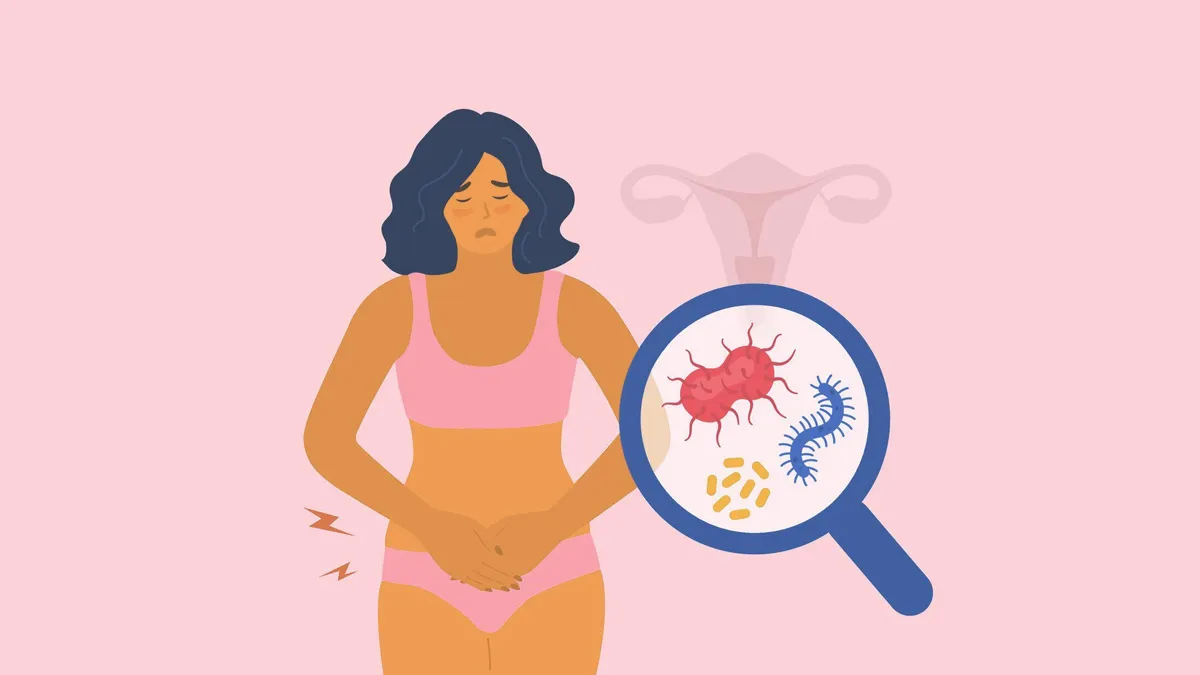Sexually transmitted diseases (STDs) are a pressing concern for women's health, yet the stigma surrounding them often leaves individuals in the dark. It's time to shatter the silence and shed light on themost common STDs affecting women. Let'sdelve into the symptoms, prevention tips, transmission methods, diagnosis, and treatment options forSTDs in women with our expert,Dr Anjalika Atrey,Sexologist,Member Of Doctube,Phoenix Multispeciality Hospital Mumbai, Maharashtra.
Sexually Transmitted Diseases (STDs) In Women: All You Need To Know
Common STDs and Their Symptoms
- Chlamydia & Gonorrhea – Abnormal vaginal discharge, pain during urination, pelvic pain.
- HPV – Often asymptomatic but can cause genital warts and lead to cervical cancer.
- Herpes – Painful blisters or sores in the genital area, flu-like symptoms.
- Trichomoniasis – Itching, foul-smelling discharge, discomfort during intercourse.
- Syphilis – Painless sores, rashes, flu-like symptoms.
- HIV/AIDS – Flu-like symptoms initially, followed by weakened immunity over time.
-In-Women-1742275057111.jpg)
Question:- What are the most common sexually transmitted diseases (STDs) that affect women?
Dr Atrey said, "The most common STDs affecting women include chlamydia, gonorrhea, syphilis, human papillomavirus (HPV), herpes, trichomoniasis, and HIV/AIDS. These infections can often go undetected due to mild or no symptoms but can lead to severe complications like infertility, pelvic inflammatory disease, and cervical cancer if untreated. Women are biologically more susceptible to STDs, making early diagnosis and treatment essential."
Question:-How are STDs transmitted, and what are the risk factors?
"STDs are primarily transmitted through unprotected vaginal, anal, or oral sex with an infected partner. Some, like herpes and HPV, can spread through skin-to-skin contact. Risk factors include multiple sexual partners, inconsistent condom use, a history of STDs, weakened immunity, and lack of regular screenings. Non-sexual transmission can occur in cases like HIV from mother to child during childbirth. Awareness and preventive measures are crucial to reducing the risk," shared the expert.

Question:-Why is it important for women to be aware of the signs and symptoms of STDs?
Dr Anjalika mentioned, "STDs often present with mild or no symptoms, leading to late diagnosis and complications like infertility, chronic pain, and pregnancy risks. Some, like HPV, may increase the risk of cervical cancer. Early detection through regular screenings allows for timely treatment, preventing transmission and long-term damage. Educating women on symptoms and encouraging open conversations about sexual health can help reduce stigma and improve overall well-being."
Question:-How can women recognisethe signs and symptoms of STDs, and what should they do if they suspect they have an STD?
Women should watch for unusual vaginal discharge, pain during urination, genital sores, itching, irregular bleeding, lower abdominal pain, and flu-like symptoms. However, many STDs can be asymptomatic, making regular screenings essential. If a woman suspects an STD, she should avoid sexual contact, seek immediate medical consultation, and get tested. Early treatment prevents complications and reduces transmission risk. Self-diagnosing or delaying treatment can lead to severe reproductive health issues.
Don't Miss:7 Ways To Ensure Women’s Wellbeing In The Workplace For Better Productivity

Question:-What are some common mistakes women make when trying to diagnose themselves with an STD?
One major mistake is self-diagnosing based on internet searches, which can lead to misinterpretation of symptoms. Some might ignore mild symptoms or rely on home remedies, which can worsen the condition. Another mistake is assuming that lack of symptoms means they are STD-free—many infections remain silent. Only a medical professional and proper testing can confirm an STD diagnosis.
Question:-How can women protect themselves from getting STDs, and what are some effective prevention methods?
Women can protect themselves by practicing safe sex, including consistent condom use and regular STI screenings. Vaccination against HPV and hepatitis B can prevent certain infections. Being in a mutually monogamous relationship with a tested partner reduces risk. Avoiding unprotected sex, multiple partners, and excessive alcohol/drug use (which may lead to unsafe sexual practices) is crucial. Open conversations about sexual health with partners and doctors can also empower women to make informed choices.
Don't Miss:Can EndometriosisImpact Your Eating Habits? Expert Reveals The Truth
If you liked this story, then please share it. To read more such stories, stay connected to HerZindagi.

Take charge of your wellness journey—download the HerZindagi app for daily updates on fitness, beauty, and a healthy lifestyle!

Comments
All Comments (0)
Join the conversation